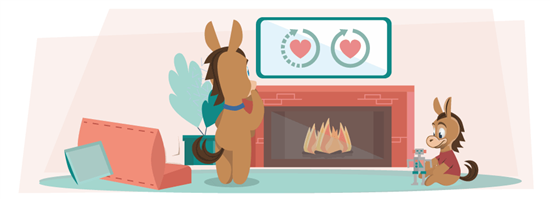How Does Life Insurance Work?
How exactly does life insurance work? What does it cover and how does the payout work? Read on to understand how life insurance works before you buy.
 |
| © CreditDonkey |
What Is Life Insurance?
Life insurance offers financial protection for one or more beneficiaries in the event of the insured's death.
A life insurance policy is a unilateral contract. As long as you pay the monthly premiums, the insurance company is committed to uphold the contract. If you stop payments, the policy will simply lapse with no death benefit payout.
While the general concept behind life insurance is simple, there are many different types of life insurance policies. You can read about them in detail here.
How Do Life Insurance Payouts Work
 |
| © CreditDonkey |
What if there is no beneficiary to inherit your death benefit? And what if the insured outlives their policy? Read on to learn more.
For Beneficiaries
Following the death of the insured, the beneficiary will contact the life insurance company. As part of the claims process, the beneficiary will need to provide a copy of the death certificate, as well as complete various claims forms.
Insurance companies are typically allowed at least 30 days to review the claim. After that point, they can approve the claim and pay out, deny the claim, or ask for additional information.
If the claim is denied, the insurance company will typically explain why. If the claim is approved, the beneficiary will receive the payout within 30 to 60 days after the claim was filed.
The amount of life insurance coverage you get will directly impact your payout, and it varies from person to person. Of those who file a claim, a payout of about $160,000 is the average.
If You Don't Die
First of all, it's great that you are still alive! What happens next depends on the type of insurance policy you have.
Term Insurance
Term insurance policies last only for a specific period of time. If you don't die while a term life insurance policy is active, the policy expires. You do not receive a payout.
Whole Life Insurance
Whole life policies last for your entire life and have a cash value element. Unless your policy includes an extended maturity option, the life insurance company will pay out the cash value plus death benefit at age 100.
Guaranteed Universal Life
Guaranteed Universal Life is the only policy that remains in effect after age 100. Some policies last up to age 121. If you live longer than that, the coverage terminates, usually without value.
If Everyone Dies
If everyone dies before you, first, I'm very sorry. Second, before you cancel your policy, figure out if you qualify for a life settlement.
In a life settlement, you sell your policy to a company for more than the cash value. Convertible term policies can qualify for life settlements.
The worse your health is, the more money you may be able to earn by selling your policy as a life settlement.
What Does Life Insurance Cover?
 |
| © CreditDonkey |
Life insurance covers most cases of death due to accident, illness, or natural death. After filing a claim, the beneficiary will receive the death benefit, which they can use to cover:
- Loss of your income
- Outstanding debts (mortgage, student loans, etc.)
- Children's education funds
- Childcare costs
- Funeral expenses
- Outstanding medical bills
What is not covered by life insurance?
Some instances of death that may not be covered are:
- Death by suicide* (within the 2-year contestability period, which we cover below)
- Murder by beneficiary
- Death from illegal activity
- Fraud/lying on application
*If death by suicide occurs and the insured failed to disclose a history of mental illness, the beneficiary would only receive a refund of the premiums paid.
If you die within the first two years of the policy, the insurance company can contest the claim and investigate your application for fraud.
If you failed to disclose important information on the application, your beneficiary may not receive the death benefit. For a minor misrepresentation, the company may pay the death benefit minus the premiums that you should have paid.
Term vs. Whole Life Insurance
There are three main differences between term and whole life insurance: length of coverage, investment component, and premium amount.
- Term life is generally less expensive than whole life and provides coverage for a specific length of time.
- Whole life, on the other hand, provides lifelong coverage with an additional investment component.
The best policy for you will depend on your specific needs and preferences. Generally speaking, term insurance is best if you only need coverage for a specific time. Whole life insurance is best if you need coverage for the rest of your life.
If you outlive your term life policy, it will either expire altogether or you can choose to convert or renew it. Those who choose to convert their policy will typically convert it to a whole life policy to secure protection until death. If you choose to renew the policy, keep in mind that your premiums will increase.
How Do Life Insurance Companies Make Money?
Life insurance works because of the law of large numbers. Most insured people will not die while their policy is in place, so the company won't have to pay out.
Insurance companies use complex data to statistically estimate how many clients will die in a given year. They use the information to set premium rates high enough to ensure they will collect enough money to pay claims.
The insurance company also invests the premiums to earn returns. The assets are mostly invested in corporate bonds, structured securities, and US Government bonds, with some in real estate, home loans, and common stocks.
As mentioned above, the first 2 years of a policy are considered a waiting period. If you die within that period, the insurance company can contest and investigate your claim. If your death did not occur in suspicious circumstances and no fraud was involved, then the company may pay the total of premiums you've already paid into the policy.
How to File a Claim
When the insured person dies, following steps are taken to ensure the beneficiary will receive the death benefit:
- Contact the insurance company
- Complete a claim form
- Provide a certified copy of the insured's death certificate
It usually takes about a week to obtain certified copies of the death certificate from the County Clerk in the county where the insured died.
- If the claim is in good order, a check will be sent to each primary beneficiary for their share. The check includes interest from the date of death until the day the money is sent.
- This amount is free from probate and not taxed.
- The beneficiary provided all the information required on the claim form,
- The circumstances of death aren't suspicious, and
- Death didn't occur during the 2-year contestable period.
If the claim is contestable, it doesn't mean the claim won't be paid. An investigation will be conducted before the company makes its decision. If fraud was not involved and death wasn't from suicide, death claims during the first two policy years are usually paid.
Bottom Line
 |
| © CreditDonkey |
Life insurance is a great tool to manage financial risks to your loved ones if you're no longer here to take care of them. Make sure you take the time to understand how it works and what is covered before you buy.
Write to Jeanine J at feedback@creditdonkey.com. Follow us on Twitter and Facebook for our latest posts.
Read Next:






